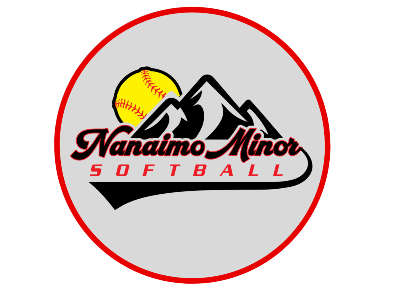Nanaimo Minor Softball Association
On-Field Strategies For Skill Enhancement
Nanaimo Minor Softball Association is poised for significant growth and success by integrating new methods for player and coaching development this season. Using strong focus on proper organization, detailed planning, and consistency, NMSA coaching coordinators are committed to building a solid foundation for future champions in the sport in Nanaimo. NMSA will be adopting development planning that follows the Softball Canada Athletic Development Matrix, which will guide our athletes through structured skill progression and holistic development on their pathway to success. The strategies included below were developed as a collective collaboration by NMSA volunteers on March 31, 2025.
Strategies
Practice Planning:
Developing a proper and engaging practice plan is key to having players interested in returning the next day, ready to go. Most teams will have approximately 13-15 practices, so having long-term out-look / planning will make things a whole ton earlier and can work with goal setting as well. Preferences will vary and so will timing, go with what works for you. We encourage you to stay basic and work up the difficulty level as the season progresses, while being mindful of the capability of the age group you are working with. NMSA suggests the following practice format:
- Dynamic Warm-Up (10-15 minutes)
Activation of all muscles through movement is essential. Participation with the players shows that you are invested in their fun and it also helps them raise their own fitness. Line players up, encourage them to work together, ask for recommendations (player input means a lot). Start with slower movements, working up speed, ending on highest intensity.
- Game / Drill (10 minutes)
Win them over early and bring in a game of any kind to ease into practice. Using gameplay is fun and gets everyone engaged and talking much faster. Let players select / lead a game (depending on the age level). Games can include: softball bulldog, tag, relay races, mini gameplay, etc.
- Stations (15 minutes per)
Each softball team consists of enough players to properly run three different stations at a practice. Stations should have at least one adult per, in order to run properly and should focus on a maximum of two skills per station (any more info can overload players quickly). Determine how the rotation will work ahead of time and gradually let other volunteers / players / coaches know when you will be rotating.
*Remember to plan for transition time, young players don’t process switching tasks as fast as adults
- Gameplay / Game (10-15 minutes)
Being mindful of time (and flow) of the practice, set time aside at the end for another form of gameplay. This can include splitting into teams and having mini gameplay, quick burst games, baserace, etc. Close things out on a high.
- Cheer / Team Meeting (2-5 minutes)
Review skills / topics covered. Create a vision for next practice game ie “Next time, we’re going to be working on ________ because we have_________coming up”. Leave families and players with a good feeling. This is also time to have a quick check-in with parents in-person, as a group (once per week is a good routine, just to cover any questions, league events, issues, etc.).
Foundational Skill Development Tips
All practices should have a desired outcome from the coaching group and it’s important to share that with the players regularly. The contributing NMSA coaches collectively highlighted a few tips to enhance player development, focusing on batting, baserunning, throwing, pitching and fielding.
Tips- Give cues - players respond with more understanding if given repetitive cues to put into action ie. Fielding Ground Balls: alligator - surfer, “alligator” indicating two hands to trap the ball in the glove (like an alligator) and “surfer” meaning to pivot the feet and stand in a throwing position.
- Run as a team - enforcement of this creates equity on your team and will encourage others to show leadership by including. Encourage activities like warm-up to be done together.
- Engage kids - look to engage every single player as soon as they arrive. Getting to know them on a personal level will absolutely help, though simply acknowledging kids and greeting them by name each practice will create feelings of belonging and that they are accounted for.
- Using appropriate equipment - size of the ball makes a big difference to the success of your drill / game, as will the bases and any other additional items. Building a personal inventory of equipment will payoff and give way more options of interest to your team ie. Nets, wiffle balls, different sports equipment, etc.
- Support fairplay and fun through conversation with other coaches - have conversation and become a student of the sport. The more that is observed, the better and more easy things will move through the season.
- Pitching - this is a fundamental part of the game and what the sport relies upon. Remove the feelings of only one or two players being responsible for pitching. Pitching should be a part of every team’s practice plan, at least once per week. This may require adults to learn alongside, and that is okay, the basics are what counts. NMSA is working with community members to further develop our pitching development structure.
- View experts through social media - taking time out of your week to learn small drills, local and international gameplay (for both boys and girls), strategies and the overall sport will immediate accelerate your skills as coach. See attachment for links to additional sources and feel free to share any good ones.
